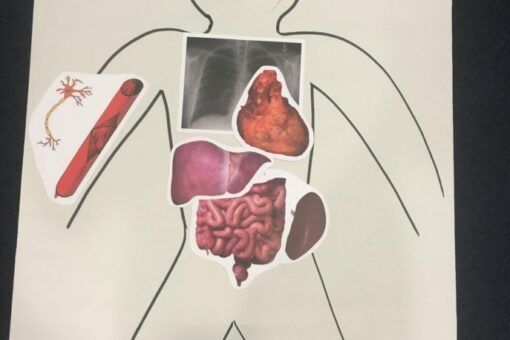
I remember my first ever StreetDoctors session – it was a dark but clear November evening in North London. I was teaching a group of young people who were on a reparation programme for carrying a weapon. At StreetDoctors, we teach young people that there is no safe place to stab someone. It was at that session that I was asked for the first time: “So where is it actually safe to stab someone?” This completely took me by surprise. Being from an ordinary, comfortable middle-class background, I had assumed the answer was just instinctive. From that point onwards, it was clear how important the work of StreetDoctors is.
It’s my strong-held belief that the young people we teach don’t choose a life of violence. They do not choose a life of crime. Many of the young people we teach come from deprived backgrounds, experience minimal education and have not received privileges that many people like myself take for granted. They find themselves in difficult and undesirable situations. In every session, we ask those present to say where they think is a safe place to stab someone. It’s apparent that many people we teach don’t realise the dangers associated with knife crime. Many have been startled to learn that stabbing someone in the backside can be fatal, or how this can easily damage a nerve and leave someone paralysed. It’s intuitive to us volunteers, with a wide range of medical knowledge, and the aim of StreetDoctors is to share this information with the people who need to know it the most. Those at risk.
In Harper Lee’s timeless novel “To kill a mockingbird”, the main character Atticus Finch gives advice that you can never really understand someone “until you climb into his skin and walk around in it”. This is how I feel about the people we teach. The general public may be unaware of how big a problem violence is among young people and who might feel that their misfortune is self-inflicted. Taking a leaf out of Harper Lee’s book, I’ve learnt that this is FAR from the case. At the start of every session StreetDoctors volunteers shake hands with the young people. The sad reality is that the only time that a lot of these young people have shaken another person’s hand is in a consultation with a lawyer.
But do we volunteers at StreetDoctors have an impact? Well, in short, yes! Young people at the start of our sessions tend to be reserved and unengaged – but by the end we’re getting asked all sort of interesting questions; about science, about how to adapt what they’ve learnt to different medical emergencies. These young people may have never had the chance before to ask such in-depth questions about science and medicine! After the session, perhaps the people we teach will think twice about carrying a knife, think twice about using a knife: this could prevent further loss of life.
We give young people a chance that has eluded them and that they thoroughly deserve – and that’s why I’m immensely proud to volunteer with StreetDoctors.
Liam Collins-Jones (StreetDoctors North London volunteer and medical student at University College London)
